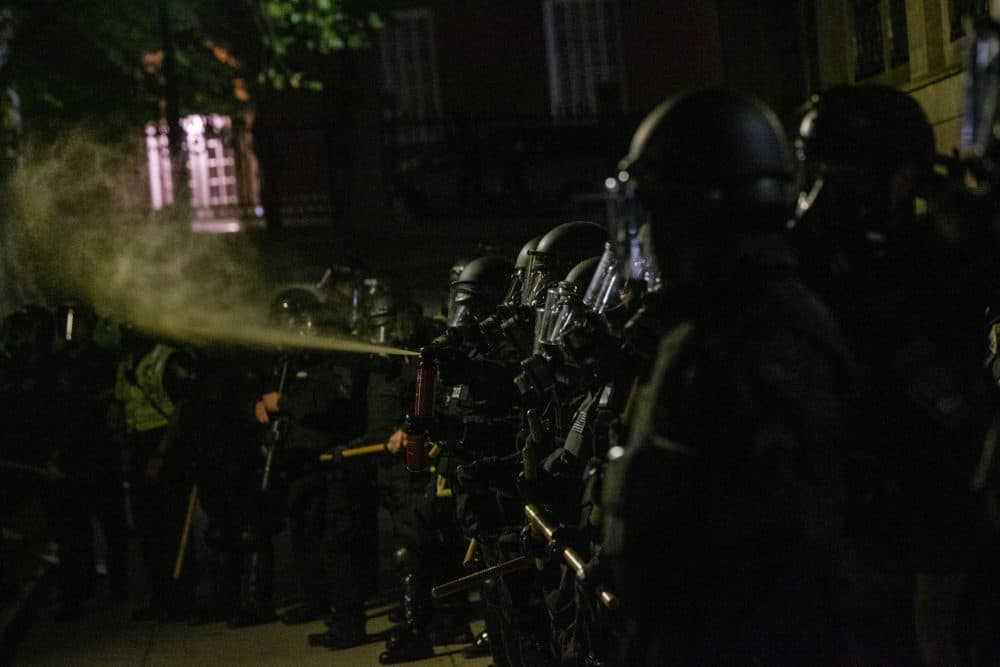Advertisement
Walsh Vetoes Ordinance That Would Restrict Police Use Of Tear Gas, Rubber Bullets

Boston city councilors plan to refile legislation that would restrict how and when police can use tear gas, pepper spray and rubber bullets after Mayor Marty Walsh vetoed the measure.
Walsh said in a statement that he had legal concerns with the measure, and that he supported restrictions on the so-called "less lethal" equipment in the newly signed state police reform law.
"We strongly believe CCCAs [chemical crowd control agents] and KIPs [kinetic impact projectiles] are only to be used when absolutely necessary to prevent violence or riots so people can safely and peacefully exercise their First Amendment rights," Walsh said. "This community policing principle is something our Boston Police Department is committed to ensuring, along with the appropriate conduct by officers."
Walsh's veto announcement came the same day he signed an ordinance creating a new police watchdog agency, called the Office of Police Accountability and Transparency. It will have subpoena power to investigate citizen complaints and examine police internal affairs investigations.
The police accountability office was the central recommendation of a police reform task force Walsh convened this summer amid calls for police accountability and racial justice.
City Councilor Ricardo Arroyo, who sponsored the ordinance restricting the weapons, said Walsh's veto does not meet the moment.
"I think that's the bare minimum we can do, as far as giving a warning [that gives] time to disperse before using weaponry that can take a life, and the fact that it was vetoed is disappointing," he said.
Police body cam videos recently released from the night of the racial justice protests on May 31 last year showed police using chemical spray on protesters as they tried to clear the crowd. In some of those moments, officers appear to issue warnings to protesters first, and at others, officers appear not to communicate that they intend to use their weapons.
City councilor Andrea Campbell, who also sponsored the ordinance and is running for mayor, pointed to those videos as why the restrictions are necessary. She said in a statement that she'll push to pass the legislation.
“Mayor Walsh's veto to this legislation is a failure of leadership when this is an opportunity to establish clear restrictions on lethal crowd control weapons and greater accountability in policing," she said. "Tear gas is deadly and banned by international law, and just last week, we saw body camera footage of Boston police indiscriminately pepper-spraying peaceful protestors."
The ordinance would have forced police to give warnings before using either tear gas or rubber bullets, announce what weapons they plan to deploy, and give people a chance to disperse.
The City Council passed the ordinance with a 8-5 vote. To secure a veto-proof majority, the council needs at least one other previously no vote to agree to the measure. Councilors Frank Baker, Annissa Essaibi George, Michael Flaherty, Ed Flynn and Matt O’Malley voted against the measure.
The new state police reform law requires officers use de-escalation tactics, if "feasible," before using any "less lethal" measure like chemical weapons, rubber bullets or police dogs. Any police department that uses them is required to file a report with the new statewide police oversight agency, which will rule whether the use was justified.
With reporting from WBUR's Hannah Chanatry and Simón Rios.
